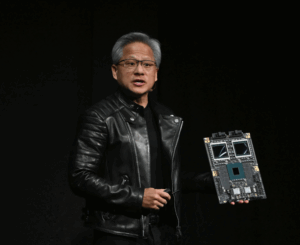Groq, a Silicon Valley-based AI chipmaker and competitor to Nvidia, has boldly predicted the future of artificial intelligence. According to Groq’s founder and CEO, Jonathan Ross, the next significant breakthrough in AI will be the development of systems capable of inventing entirely new models autonomously. Ross envisions a future where AI doesn’t just process data or execute tasks but actively creates novel algorithms and architectures, marking a transformative shift in the field.
This perspective aligns with Groq’s strategic focus on AI inference—the phase where AI models apply learned information to make decisions or predictions. Unlike many companies that concentrate on training AI models, Groq emphasizes the importance of inference, anticipating that it will demand more computational resources than training as AI applications become more widespread. To address this, Groq has developed its specialized hardware, Language Processing Units (LPUs), which are designed to accelerate inference processes efficiently.
Groq’s LPUs are engineered for speed and energy efficiency, aiming to outperform traditional GPUs in running large language models. The company claims its technology can deliver faster and more cost-effective AI inference, which is crucial for real-time applications. This focus on inference positions Groq to meet the growing demand for AI capabilities across various industries.
Furthermore, Groq has outlined a roadmap for the evolution of generative AI, identifying five future stages: Assist, Inform, Agent, Invent, and Autonomy. Ross highlights that as a forthcoming milestone, the “Invent” stage involves AI systems that can autonomously create new models and solutions, pushing the boundaries of current AI capabilities.
In summary, Groq’s prediction underscores a paradigm shift in AI development, moving towards systems that perform tasks and innovate independently. This vision reflects the company’s commitment to advancing AI inference technology and its belief in the transformative potential of autonomous AI innovation.


+ There are no comments
Add yours